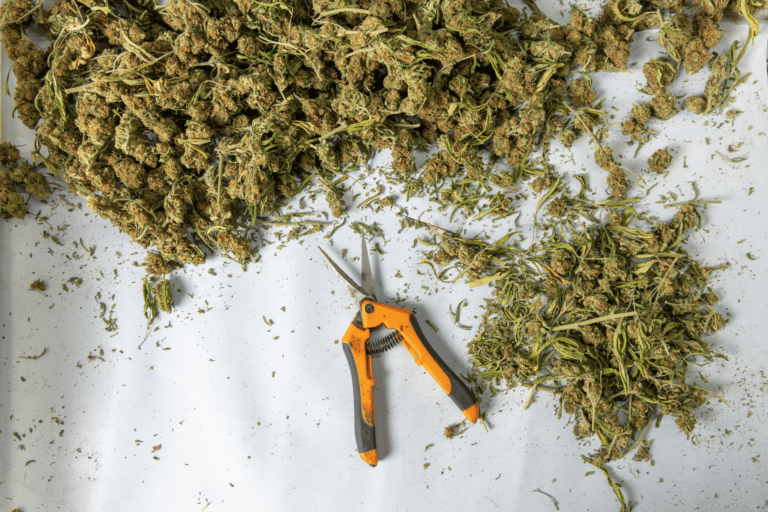Bells Palsy
Can medicinal weed help people suffering from Bell’s Palsy? Read below to find out if MMJ is suitable for your symptoms.
What is Bell’s Palsy?
Bell’s palsy is the temporary weakening or paralyzing of the facial muscles caused by a pinched facial nerve. People with facial nerve palsy develop a droopy appearance on one or both sides of the face. The condition often naturally resolves in a few months and is not life-threatening, but pain and discomfort are typically involved.
How Common is Bell’s Palsy?
Approximately 40,000 people in the United States develop Bells Palsy annually.
Symptoms
The most common symptoms of Bells palsy include:
- Disordered movement of the facial muscles
- Loss of feeling in the face
- Headache
- Tearing
- Drooling
- Loss of taste
- Hypersensitivity to sound
- Inability to close one or both eyes
Bells Palsy Causes
The cause of Bell’s palsy is unknown, but it may be due to inflammation as a response from the immune system to the nerve-controlling movement of the face. Bell’s palsy is often associated with the following:
- Diabetes
- High blood pressure
- Head or Nerve Injury
- Lyme disease
- Guillain-Barré syndrome
- Sarcoidosis
- Myasthenia gravis
- Multiple sclerosis
- Viral infection
Risk Factors
Bell’s palsy affects both men and women of all races. It typically occurs in people between the ages of 15 and 60. You may be more prone to Bell’s palsy if you have the following:
- Autoimmune disease
- Cold Sores
- Diabetes
- Family history of Bell’s palsy
- High blood pressure
- Mononucleosis
- Shingles
- Pregnancy (are currently pregnant)
What is inflammation?
Inflammation is the immune system’s response to a harmful irritant in the body. The aggravation might be a germ or a foreign object. Inflammation can begin before you notice the issue when the body tries to fight against the irritant.
The most common causes of inflammation are:
- Germs like bacteria, viruses, or fungi
- Injuries like scrapes or damage through foreign objects
- Effects of chemicals or radiation
Medical marijuana is commonly found to possess significant anti-inflammatory and antioxidant properties, which can help with chronic pain management reasonably quickly. Cannabinoid receptors bind to the brain and peripheral nerve cells and help regulate how you see and feel the pain to reduce symptoms. Medical cannabis, therefore, as opposed to other drugs, appears to be an excellent alternative to treat and manage pain due to inflammation.
Recent studies from medicine and health sciences professionals suggest that certain cannabis products may effectively treat an overactive immune system. It can connect with the cannabinoid receptors of the body to combat the proinflammatory t-cell responses needed. It has been used to treat rare skin conditions, Crohn’s disease, neuropathic pain, particularly autoimmune disease, inflammatory bowel disease, acute psychosocial stress, and many other conditions.
Bell’s Palsy Diagnosis
No specific tests are used to diagnose Bell’s palsy, but your doctor may order tests to rule out other conditions and determine the extent of nerve damage. These tests may include the following:
- Electromyography (EMG)
- Blood tests
- Magnetic resonance imaging (MRI)
- Computed tomography (CT)
What is Neuropathy?
Neuropathy happens in your brain due to damage to the peripheral nervous system. One of the sensations associated with neuropathy is frequent burning or tingling pain within the affected areas. Neuropathy can weaken the nerves so significantly that your body can’t cope with the pain. This neuropathic pain can be hard to deal with but even more difficult to ignore. While peripheral neuropathy can occur across the human body, most people are diagnosed with the fingers and feet first.
The peripheral nervous system is a network of nerves that connects the central nervous system in the brain and spine to the rest of the body. This system controls our sense of touch, blood pressure regulation, digestion, heart rate control, and even breathing.
In people with diabetes mellitus, neuropathy is more common. However, 8.8% of non-insulin-dependent diabetes patients are diagnosed with clinical neuropathy. If a patient stays in a diabetic condition for more than 20 years, their mortality rate is expected to rise.
An estimated six to 51 percent of adults with diabetes show signs of peripheral neuropathy. These results include patients of different ages, durations of diabetes, glucose control, and type 1/ type 2. Their neuropathic symptoms range from asymptomatic, to mild, to severe pain.
Can Medical Cannabis Help?
Medical marijuana is commonly found to possess significant anti-inflammatory and antioxidant properties, which can help with chronic pain management reasonably quickly. Cannabinoid receptors bind to the brain and peripheral nerve cells and help regulate how you see and feel the pain to reduce symptoms. Medical cannabis, therefore, as opposed to other drugs, appears to be an excellent alternative to treat neuropathy and bell’s palsy patients and manage pain due to nerve damage.
When it comes to the best medical marijuana strains to cure neuropathic pain, you need something to treat more severe pain and other symptoms related to neuropathy and bell’s palsy. Fortunately, many strains work extraordinarily to relieve muscle spasms, swelling, and tension.
Last Updated: June 14, 2024
Get Your Medical Card
Connect with a licensed physician online in minutes
Table of Contents
Keep Reading
-
Discover The Best Indica Strains For Relaxation
Discover the ultimate guide to finding the best Indica strains for relaxation. Unwind and destress with these top picks and find your perfect chill companion today! Click here to start your journey towards pure relaxation.
-
The Role Of Cannabis In Addiction Treatment: Current Research
Learn about the cutting-edge research on cannabis and its potential to revolutionize addiction treatment. Uncover the truth behind its role in recovery and click now to discover more!
-
How Can I Use Leftover Leaves and Stems?
Don’t throw away all that marijuana trimming! Learn how to use your leftover leaves and stems to create delicious edibles, make homemade extracts, and more.



